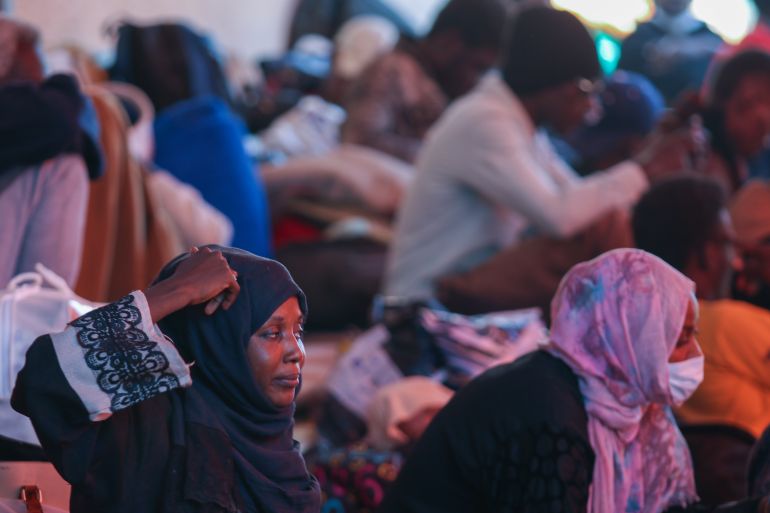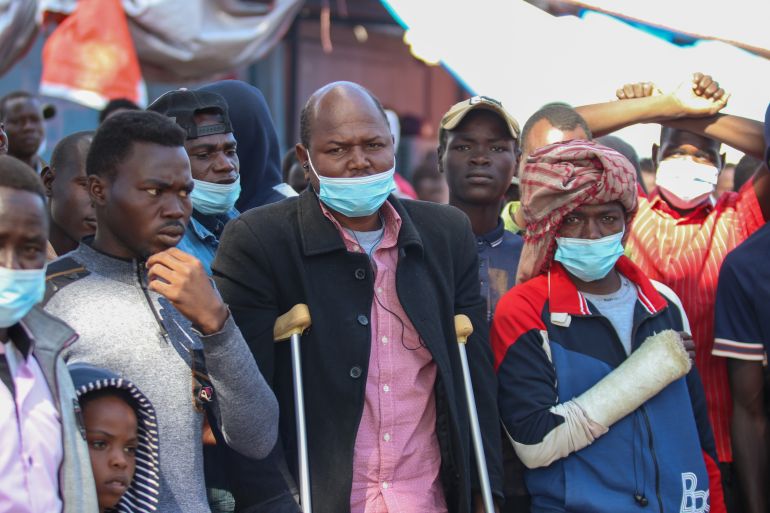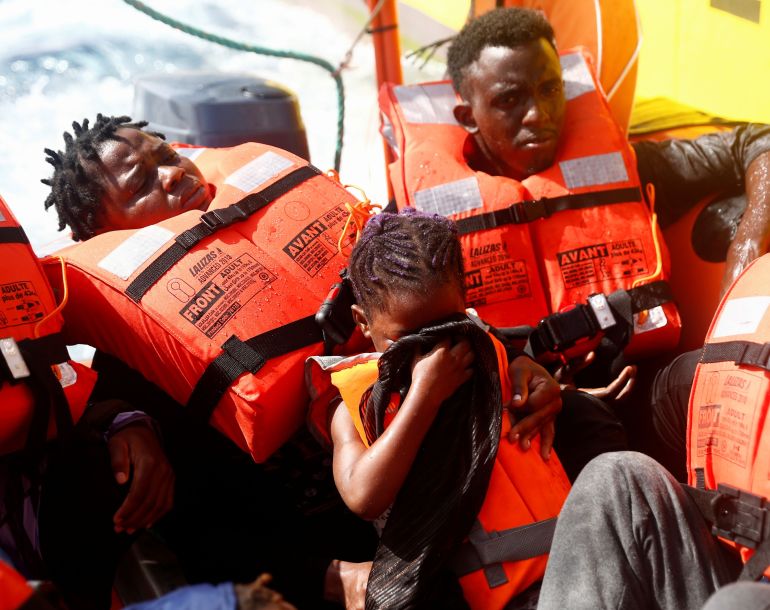Date: Sunday, 10 December 2023
Refugee Salem Doma was tortured and held for ransom in Bani Walid, Libya, another victim of human trafficking.

Bani Walid, Libya – Salem Doma never imagined that, after escaping government oppression at home in Eritrea, his greatest hardship still lay ahead, in the town of Bani Walid in northwest Libya.
The 23-year-old had travelled through Ethiopia and Sudan before, on October 18, his family received a message from a Sudanese number. It was a video showing Doma being brutally tortured, naked, with his arms and legs bound as he was whipped across his back.
The abductors’ demands were clear: $12,000 from the family in Eritrea, or they would kill their son within a week.
At the time his brother spoke with Al Jazeera, on November 18, the family had managed to scramble together only 140,000 Ethiopian birr (about $2,500), and the clock is still ticking.
His older brother, Hussein, who lives in Ethiopia, is struggling to raise more. All the while, during repeated calls from Bani Walid, he has to listen to his brother’s screams as his abductors torture him.
“My heart breaks for what my brother is feeling, and I fear the traders [kidnappers] will kill him before we can gather the full amount,” Hussein says.
Within Libya’s shifting landscape of militias, refugee detention centres and illegal prisons, Bani Walid, about two hours southeast of Tripoli, has emerged as the pre-eminent hub for ransoming abducted refugees intercepted as they cross Libya.

Numbers are impossible to come by. However, of the 47,000 refugees and migrants estimated to have arrived in Italy from Libya so far this year, many will have spent time being illegally detained in Libya. A large portion of them in Bani Walid.
After two months of detention in brutal conditions, William Siyee, a 38-year-old Nigerian, managed to escape the human smugglers who held him in Bani Walid.
“When I wanted to migrate by rubber boat, I paid 6,000 dinars [approximately $1,100]” to go from the historic town of al-Khums to a new life in Europe, he says.
“It was pitch dark, and I didn’t know the exact destination, but I just wanted to go to Europe to live a decent life.”
Instead, his boat was intercepted by armed men who returned him and the other passengers to Libya. The young Nigerian prayed not to be taken and sold into the neighbourhoods of Bani Walid – “the worst place on earth,” he says.
“They took us back, and I was deported from al-Khums to Bani Walid and was imprisoned” he remembers, going on to detail how his family in Nigeria was coerced into paying 3,000 dinars ($550) to secure his release after being shown videos of him being tortured.
Still in Bani Walid, where he finds work occasionally for about $20 a day, Siyee says his physical scars have healed but the psychological scars remain.
While Libya’s semi-legitimate militias have been implicated in the arbitrary detention and torture of refugees for a while, Bani Walid with its armed gangs of predominantly young men, who specialise in torture and extortion, has earned a vicious reputation within Libya’s unforgiving landscape.

Survivors recount stories of being subjected to electric shocks, sexual assault, and the use of implements against bare flesh, to extract the maximum degree of visible and audible pain to send back to those they love at home.
Any central authority has struggled to establish itself within Libya since its 2011 revolution as instability and conflict racked the country and two rival parliaments sprang up: an internationally recognised body in Tripoli and its rival in the eastern city of Benghazi. In between, varying degrees of lawlessness and militia-rule hold sway.
Videos posted by Refugees in Libya on X, formerly Twitter, paint a dispiriting picture of the situation across Libya.
In one clip, two women from Eritrea appear, both having been violently beaten across their backs with sticks by armed men, leaving marks and bruises. In another, a young, frail Eritrean man wearing a cross around his neck is seen with his hands tied. He pleads in Tigrinya for help, saying, “I’ve been in Libya for four months, there’s no one to help me.”
The traffickers are demanding $7,500 for his release.
David Yambio, a 25-year-old from South Sudan, created Refugees in Libya on X, Facebook, and Instagram about two years ago to highlight the plight of undocumented people in Libya.
“The videos are sent to us by the traffickers themselves,” Yambio said. “They use the victims’ numbers and contact us on our hotline [which operates around the clock] via WhatsApp,” he said. “So far, we’ve been able to speak to 20 people we saw during these video calls.”
While the gangs are using Yambio’s platform for their own ends, he hopes the videos will eventually help prosecutors bring the gangs to justice.
Despite the scale of the abuse of the undocumented in Libya, human rights activists like Tariq Lemloum have pointed to the continued sponsorship by the European Union, which provides financial support to militias and their affiliates.

EU Commissioner for Migration Ylva Johansson acknowledged in July of this year that the Libyan Coast Guard had been infiltrated by criminal gangs but the EU continues to back it through funding and training, despite Human Rights Watch and other groups roundly criticising it for doing so.
The European Union has not responded to Al Jazeera’s request for comment.
For Lemloum and other activists, both the issue of Bani Walid and the continued extortion of undocumented refugees’ families are as wearying as they are repugnant. Throughout pockets of Libyan society, they said, the trade in human life has taken hold and festered.
Tackling the issue of human trafficking in towns like Bani Walid was always going to need more than a security response, Lemloum said. Instead, he and others like him urge a wider response from authorities, one marshalling social and community networks, to stamp the trade out altogether.
Ahmed Hamza, head of Libyan NGO the National Human Rights Committee, criticised the Government of National Unity in Tripoli, saying it had proven unable to deal with the issue.
Critically, according to Hamza, many of the militias and armed groups extorting money from refugees’ families are the same ones the Tripoli parliament relies on for legitimacy and to project power, stymieing any desire to halt the practice.
Within government, policies intended to tackle the crisis have clashed, while confusion among agencies charged with implementation has stymied efforts where the need for integrated, coordinated action was most acute, Hamza said.
The work of the National Human Rights Committee continues: monitoring, documenting and following up on reported violations. In the meantime, Hamza said, what they record is passed to judicial and security authorities in hopes that they will follow up and dismantle the networks, freeing those who have been subjected to brutal torture and extortion.
At the time of writing, Salem Doma remained missing.
https://www.youtube.com/watch?v=dz6e3PgeZXU&t=15s